NSYSU hosts 2020 International Conference on Smart Sensors to share latest research, development, and commercialization results in microsensors, microactuators, MEMS and microsystems
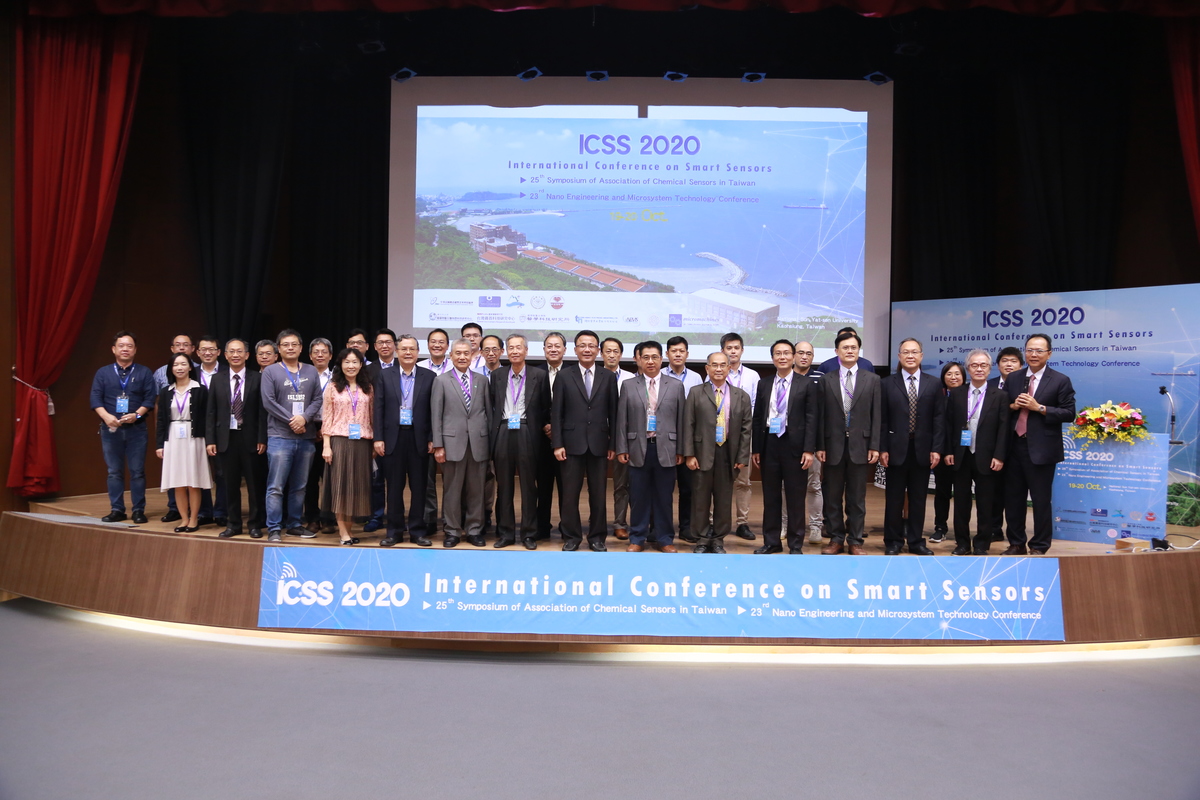
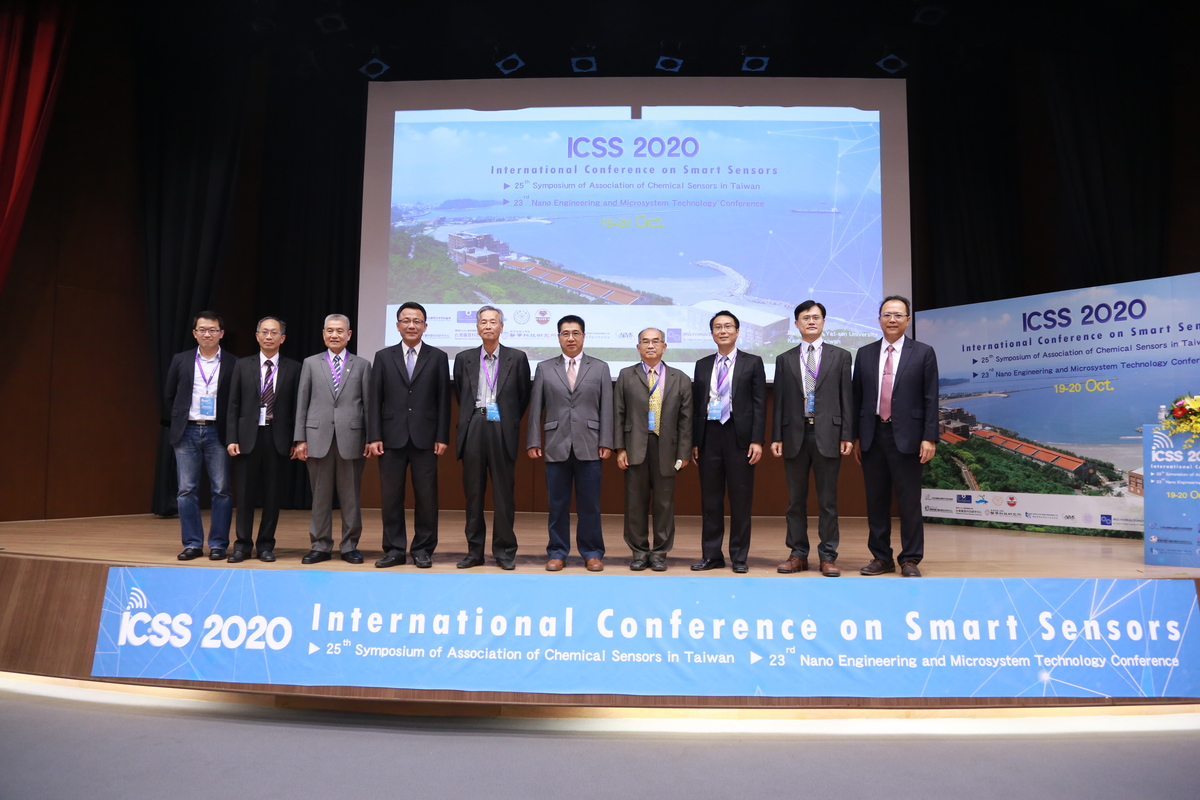
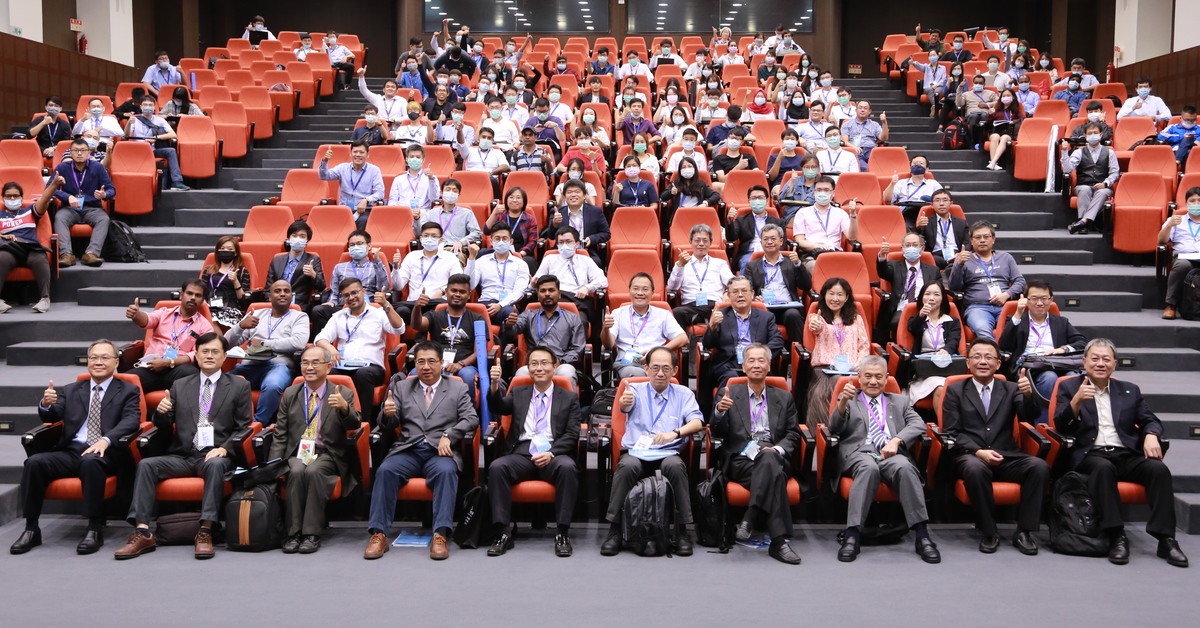
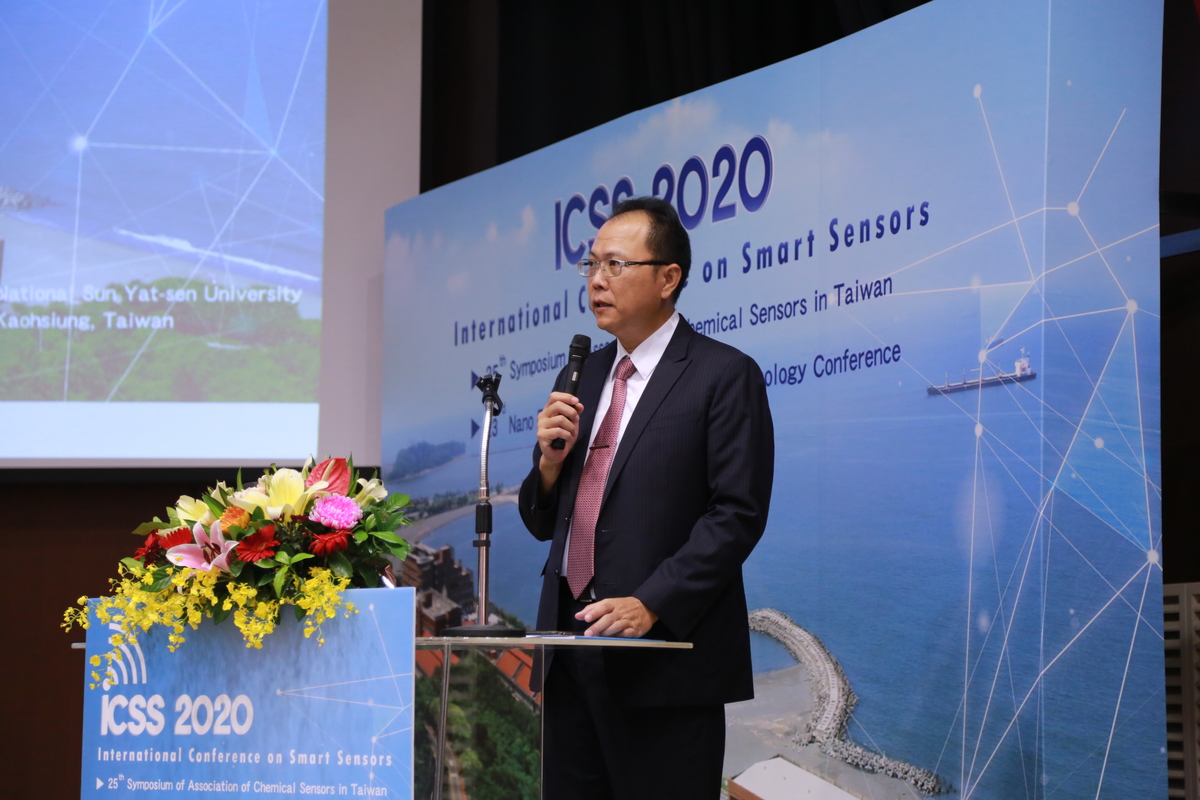
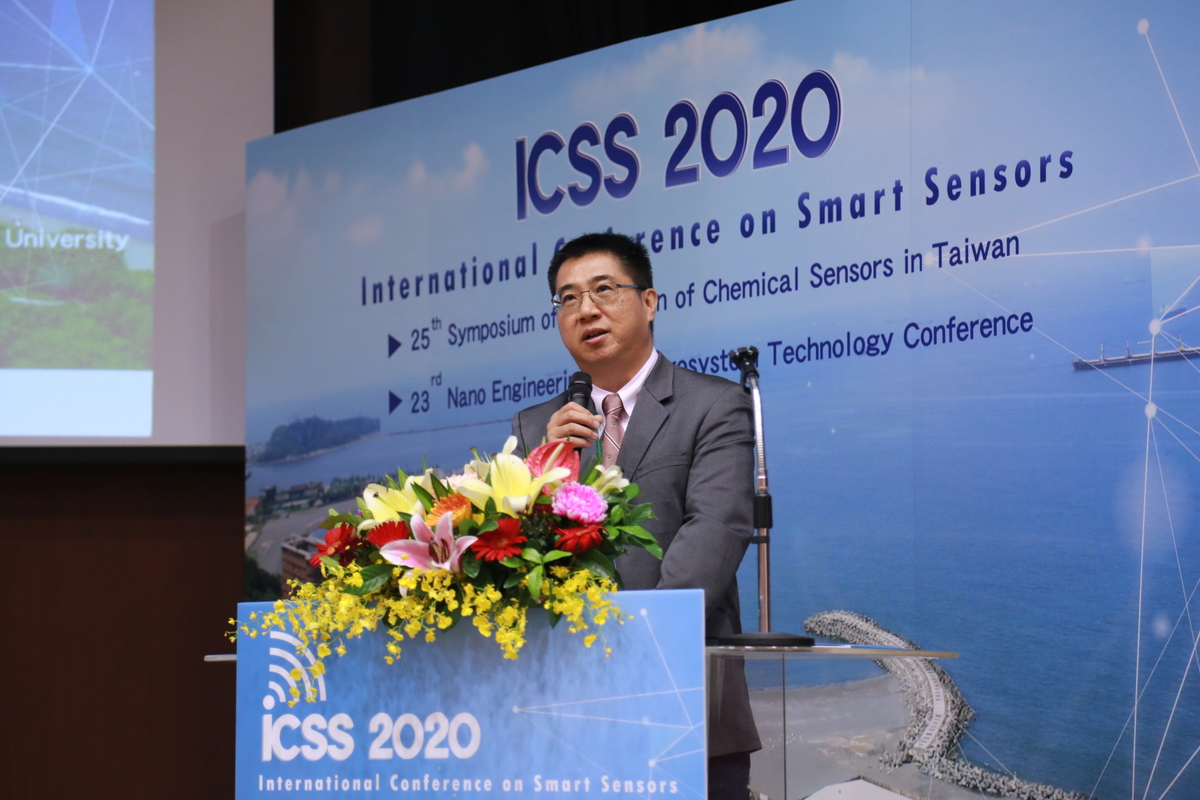
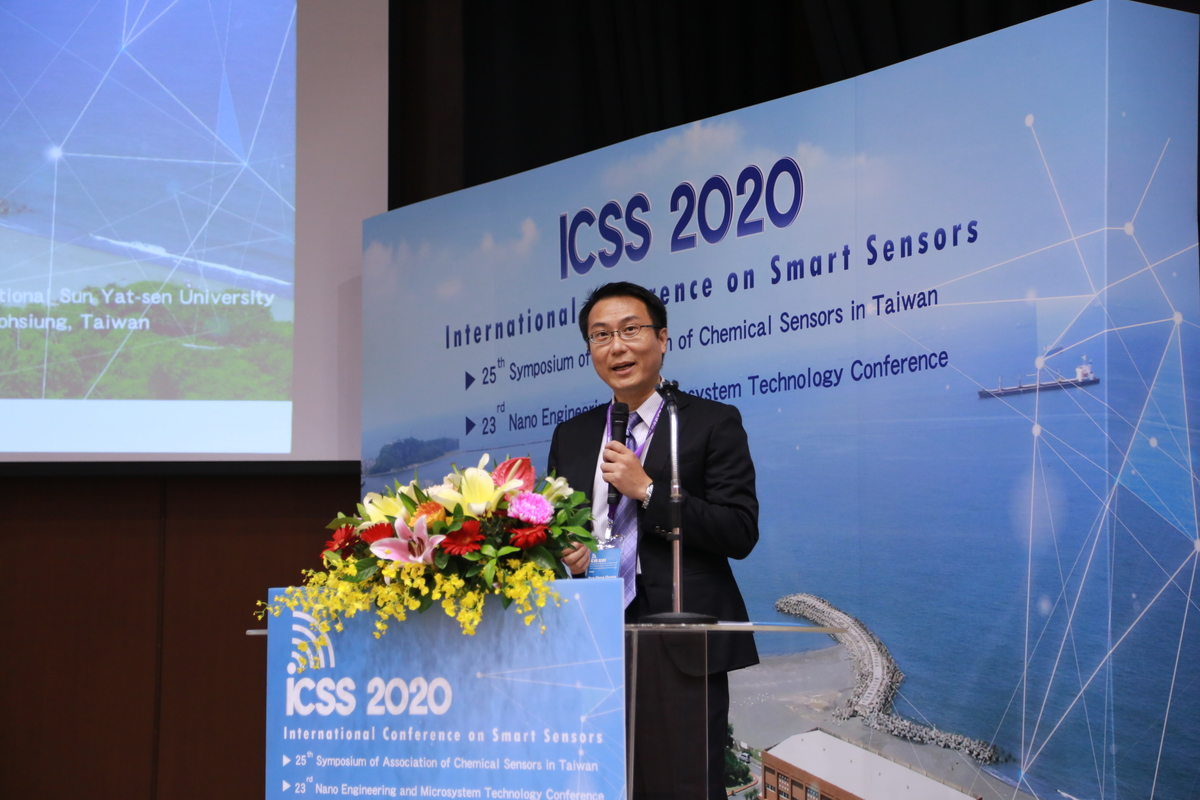
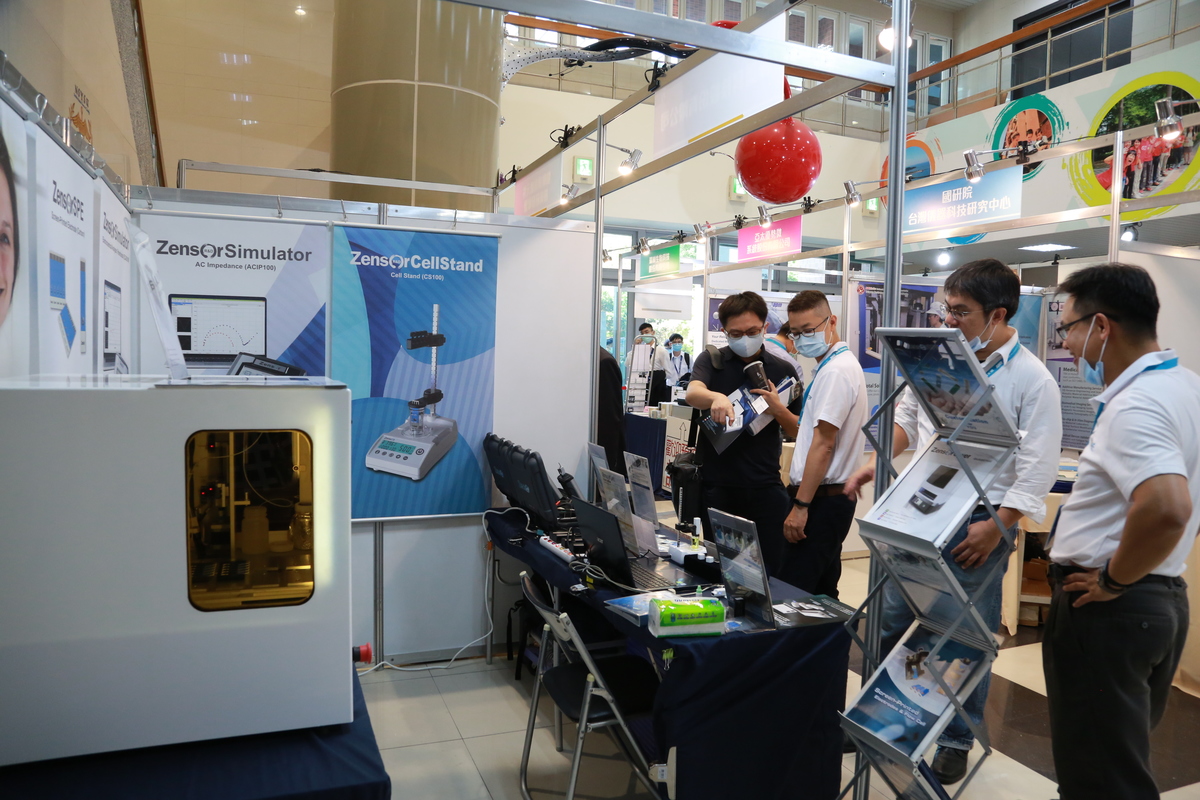
On October 19-20, NSYSU hosted the 2020 International Conference on Smart Sensors (ICSS), organized together with the Association of Chemical Sensors in Taiwan (ACST) and Nano-Technology and Micro-System Association (NMA). The Conference was a platform for the academia and industry to share the latest research, development, and commercialization results in microsensors, microactuators, MEMS and microsystems, and their applications in health-related fields and medical devices, transportation, environment, energy harvesting, and intelligent ambient and a broad variety of consumer products. Despite the COVID-19 pandemic, the ICSS attracted 237 submissions and more than 300 Taiwanese and international participants, some of whom joined the event online, said President of ACST Prof. Han-Sheng Chuang. The visit of 14 exhibitors – technological companies and research centers from Taiwan and Japan – was a spotlight in the program.
The changes in lifestyles and living environments made the world population easily exposed to health threats such as cancers and emerging or re-emerging infectious diseases. The COVID-19 pandemic causes the world to be in high demand for quick, accurate, and affordable testing that can be performed without the involvement of trained technicians to prevent virus transmission, thus, the ICSS was an opportunity to present emerging modalities for detection of COVID-19 and recent developments of commercial kits, as well as discuss commercialization strategies and dilemmas of detection technology for medical purposes when many countries are establishing Emergency Use Authorization to speed up the process and quickly respond to the pandemic. Tzu-Heng Wu of PlasmonicTron explained how the hybridization chain reaction targets the SARS-CoV-2 N1/N2/N3 cDNA gene and be used as an alternative diagnostic tool in this emerging pandemic. Assistant Professor Day-Yu Chao of the Graduate Institute of Microbiology and Public Health at National Chung-Hsing University stated that a multiplex assay to differentiate human coronavirus or respiratory viral infection is needed in facing the lift of lockdown and the durability of antibody after infection and that combined POC tests to detect both nucleic acid and antibodies will be crucial when the vaccine will be available with only moderate efficacy.
Another major concern for public health is cancers, with lung cancer being one of the leading causes of death worldwide. Bor-Ran Li of the Institute of Biomedical Engineering, National Chiao Tung University, developed a spiral microfluidic device that can rapidly isolate cancer cells and other unrelated molecules from pleural effusion through fluid dynamics. The device has the advantages of rapid processing and low cost, which are conducive to rapid and accurate clinical diagnosis. Associate Professor Hong-Wei Yang of the Institute of Medical Science and Technology at NSYSU, together with his team developed instrument-free rapid diagnostic tests with a smartphone to obtain test results for prostate cancer, urothelial carcinoma, lung adenocarcinoma, breast cancer, ovarian cancer, colorectal cancer, Dengue fever, Zika and Ebola viruses in just 15 minutes by analyzing a drop of blood, urine or saliva.
But smart sensors are not only about medical applications. The industry is in need of new technologies to foster the development of new sectors essential for the new decade. In his plenary talk, Dr. C.P. Hung, Vice President of Corporate R&D at ASE Group, reviewed the System in Package innovations, describing how the needs are achieved with higher density, small form factor, with increased component types including mixed wafer nodes, essential for AIoT, 5G, automotive industry, and data center applications in the new decade.
Professor Hyung Gi Byun of the Division of Electronics, Information and Communication Engineering Kangwon National University in South Korea studies the least understood of human senses – olfaction, to benefit both the entertainment industry and the medical field. He is working on an olfactory display using compute controlled scent generators that can be applied in multimedia services and on an odor sensing system for exhaled breath analysis to detect such diseases as diabetics, lung cancers, and inflammatory bowel disease, using chemical sensors array based on nanotechnology and a chamber that can be used for solid phase micro extraction.
Other areas of application of smart sensors presented during ICSS included: solar cells, food additives, gas sensor applications, current and temperature sensing, myocardial infarction diagnosis, bacteria detection, plant sensor applications, Alzheimer’s disease biosensing, detection of chronic kidney disease, detection of allergen, and many others.
The 2020 International Conference on Smart Sensors was a joint event of the 25th Symposium of Association of Chemical Sensors in Taiwan the 23rd Nano Engineering and Microsystem Technology Conference. It is a premier conference in Taiwan focusing on the promotion of advanced research and industrial collaboration, which topics were categorized into chemical sensors, biosensors, microfluidics for medical and biological applications, MEMS and NEMS fabrication, microfluidics, applied MEMS and applied microfluidics. The Institute of Medical Science and Technology at NSYSU is not new to these topics – it has been working on developing particles, drug delivery, nanofluidics, microfluidics, and electrochemical sensors, said the Director of the Institute and the Organizing Chair of ICSS Professor Cheng-Hsin Chuang.
The changes in lifestyles and living environments made the world population easily exposed to health threats such as cancers and emerging or re-emerging infectious diseases. The COVID-19 pandemic causes the world to be in high demand for quick, accurate, and affordable testing that can be performed without the involvement of trained technicians to prevent virus transmission, thus, the ICSS was an opportunity to present emerging modalities for detection of COVID-19 and recent developments of commercial kits, as well as discuss commercialization strategies and dilemmas of detection technology for medical purposes when many countries are establishing Emergency Use Authorization to speed up the process and quickly respond to the pandemic. Tzu-Heng Wu of PlasmonicTron explained how the hybridization chain reaction targets the SARS-CoV-2 N1/N2/N3 cDNA gene and be used as an alternative diagnostic tool in this emerging pandemic. Assistant Professor Day-Yu Chao of the Graduate Institute of Microbiology and Public Health at National Chung-Hsing University stated that a multiplex assay to differentiate human coronavirus or respiratory viral infection is needed in facing the lift of lockdown and the durability of antibody after infection and that combined POC tests to detect both nucleic acid and antibodies will be crucial when the vaccine will be available with only moderate efficacy.
Another major concern for public health is cancers, with lung cancer being one of the leading causes of death worldwide. Bor-Ran Li of the Institute of Biomedical Engineering, National Chiao Tung University, developed a spiral microfluidic device that can rapidly isolate cancer cells and other unrelated molecules from pleural effusion through fluid dynamics. The device has the advantages of rapid processing and low cost, which are conducive to rapid and accurate clinical diagnosis. Associate Professor Hong-Wei Yang of the Institute of Medical Science and Technology at NSYSU, together with his team developed instrument-free rapid diagnostic tests with a smartphone to obtain test results for prostate cancer, urothelial carcinoma, lung adenocarcinoma, breast cancer, ovarian cancer, colorectal cancer, Dengue fever, Zika and Ebola viruses in just 15 minutes by analyzing a drop of blood, urine or saliva.
But smart sensors are not only about medical applications. The industry is in need of new technologies to foster the development of new sectors essential for the new decade. In his plenary talk, Dr. C.P. Hung, Vice President of Corporate R&D at ASE Group, reviewed the System in Package innovations, describing how the needs are achieved with higher density, small form factor, with increased component types including mixed wafer nodes, essential for AIoT, 5G, automotive industry, and data center applications in the new decade.
Professor Hyung Gi Byun of the Division of Electronics, Information and Communication Engineering Kangwon National University in South Korea studies the least understood of human senses – olfaction, to benefit both the entertainment industry and the medical field. He is working on an olfactory display using compute controlled scent generators that can be applied in multimedia services and on an odor sensing system for exhaled breath analysis to detect such diseases as diabetics, lung cancers, and inflammatory bowel disease, using chemical sensors array based on nanotechnology and a chamber that can be used for solid phase micro extraction.
Other areas of application of smart sensors presented during ICSS included: solar cells, food additives, gas sensor applications, current and temperature sensing, myocardial infarction diagnosis, bacteria detection, plant sensor applications, Alzheimer’s disease biosensing, detection of chronic kidney disease, detection of allergen, and many others.
The 2020 International Conference on Smart Sensors was a joint event of the 25th Symposium of Association of Chemical Sensors in Taiwan the 23rd Nano Engineering and Microsystem Technology Conference. It is a premier conference in Taiwan focusing on the promotion of advanced research and industrial collaboration, which topics were categorized into chemical sensors, biosensors, microfluidics for medical and biological applications, MEMS and NEMS fabrication, microfluidics, applied MEMS and applied microfluidics. The Institute of Medical Science and Technology at NSYSU is not new to these topics – it has been working on developing particles, drug delivery, nanofluidics, microfluidics, and electrochemical sensors, said the Director of the Institute and the Organizing Chair of ICSS Professor Cheng-Hsin Chuang.
Click Num:
Share
